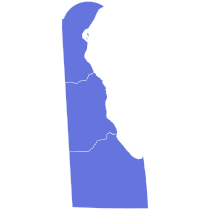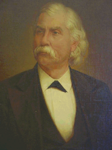Democratic convention
At the Democratic convention in Dover in August 1886, former Congressman Benjamin T. Biggs entered as the frontrunner. [4] He faced a number of prospective candidates, including: [5]
Despite the fierce competition, however, Biggs was easily nominated, winning the convention vote on the first ballot. [9]
This page is based on this
Wikipedia article Text is available under the
CC BY-SA 4.0 license; additional terms may apply.
Images, videos and audio are available under their respective licenses.


